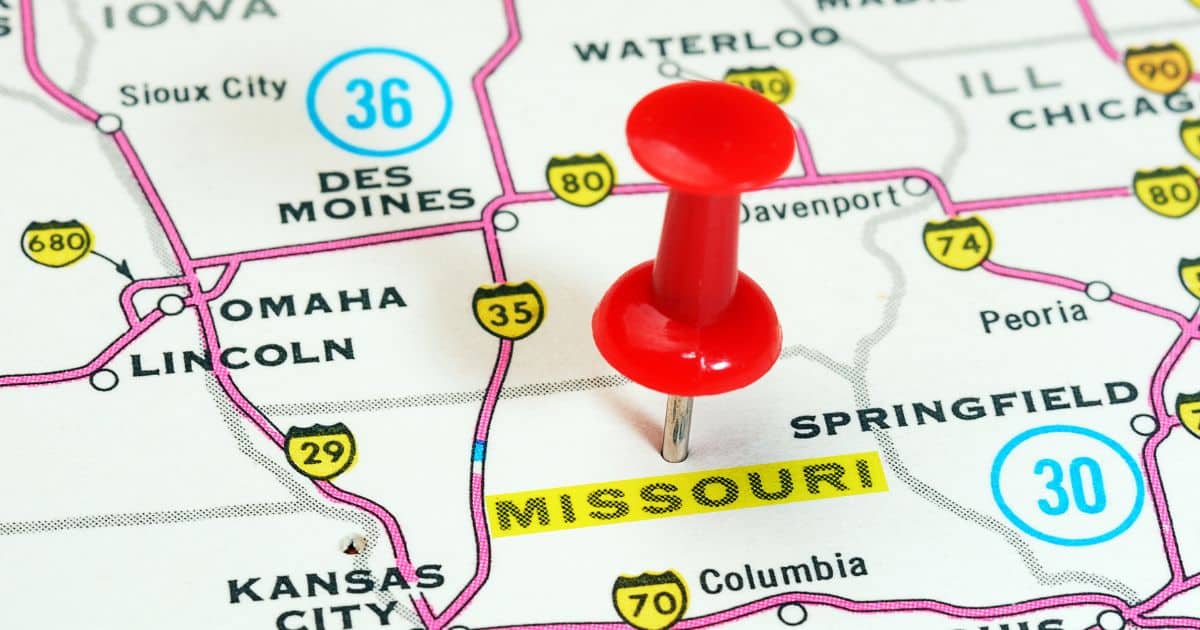The state of Missouri recently rolled out a micro-licensing program with the intention of helping minority groups and small businesses gain access to the recreational cannabis industry, which large cannabis companies are currently leading.
The program is intended to provide an alternative pathway for those who may otherwise have difficulty obtaining licenses due to financial or social restrictions.
However, some question the selection criteria used to determine eligibility for these micro-licenses, particularly using zip codes as geographical identifiers. While this was likely intended as a way to target communities impacted by marijuana prohibition, some worry that it may end up being more restrictive than originally intended.
Missouri Micro Licensing Program, How to Qualify, and What the Requirements Are
The state of Missouri is rolling out a micro-license program for recreational cannabis, which will allow small business owners to enter the legal cannabis market. The main goal of this program is to provide opportunities to people and communities that have been disproportionately affected by marijuana prohibition.

The license is only valid in Missouri and will be awarded through a lottery system after an application period closes. To qualify, applicants must meet at least one of certain requirements based on their location, income level, or experience with marijuana-related charges. A recent article published in The Kansas City Star breaks down the requirements.
Location
Applicants may qualify for a micro-license if they live in a census tract area where at least 30% of the community lives below the poverty line or if they reside in an area with an unemployment rate 50% higher than the state average.
Applicants may also qualify if they graduated from an unaccredited high school or live in a ZIP code that housed an unaccredited school district for three of the past five years.
Income
Individuals applying will need to have a net worth of less than $250,000 or an income less than 250% of the federal poverty level, which is around $34,000 a year for one person in 2022.
To qualify, a person qualifying for a license under the income category needs to meet this financial criterion for at least three of the past ten years.
Communities Impacted by Prohibition
Specific groups that qualify include disabled veterans and individuals whose families have been arrested, prosecuted, or convicted of a nonviolent marijuana offense. To qualify, the charge must have occurred before December 2021. This category does not include anyone charged with providing marijuana to minors or driving under the influence of marijuana. People who live in a community where the rate of incarceration for marijuana-related charges is historically higher than the rest of the state by at least 50% also qualify.
To be considered eligible, applicants must meet one or more of these criteria and submit an application with a $1,500 fee. After applications close, a lottery will be held to award micro-licenses in Missouri’s eight congressional districts for 48 licenses annually until 2025.
The goal is to provide opportunities to individuals and communities that have been disproportionately affected by marijuana prohibition. Despite this goal, some have criticized the program for being more restrictive than full licenses given to established companies. The micro-license program is a step in the right direction, however, and could be beneficial if administered properly.
Criticisms of the Program
Critics of the program have pointed out that some of the criteria for qualification, one of the main criticisms of the micro-licensing program, is that the selection criteria used to determine eligibility are overly restrictive, especially regarding zip codes.
Zip codes have been met with skepticism since it does not account for income levels or any other factors related to individuals. It also fails to recognize current changes in the population and economic activity within a particular area.

This means that people living in an area may no longer qualify even if they meet all other requirements due purely to their location. Critics argue that this could leave many minorities behind because they may be unable to afford or qualify for a license under such stringent criteria.
This is concerning, given that marijuana prohibition has disproportionately impacted minority communities.
Furthermore, many have argued that these requirements are stricter than full licenses given to established companies. The reaction from prospective applicants and those in the industry has been mixed. Some feel hopeful about the potential opportunities micro-licenses provide for smaller businesses. In contrast, others worry they may not be able to afford or even be selected for a license because of the lottery system set in place. Andrew McDowell, who co-owns Funky Skunk, a Black-owned smoke shop in Raytown, Missouri, recently told The Kansas City Star
“You can have all the boxes checked and be the best possible option for the state to select, and you still might not get it because it’s a random selection,” he said. “It’s just about making sure that we put our best foot forward with the application and make sure it’s timely and complete.”
Overall, there is still a lot of uncertainty surrounding this new program and how it will affect minority-owned businesses, particularly black-owned ones. It remains to be seen if the micro-licensing program will truly provide an opportunity for minorities to succeed in the cannabis industry or if these stringent requirements will end up pushing them even further behind.
Keep updated on all the latest news and updates in the Cannabis industry here at Beard Bros Pharms by signing up for our Friday Sesh Newsletter here. Always Dank and Never Spam!
- Can CBD Help Combat Alcohol Binge Drinking? A Study Suggests It Might
- Missouri Hemp Farmers Form Missourians for a Single Market in Attempt to Redefine Regulations
- Restaurant Spotlight: 1811 in Berlin – Timeless Taste in Charlottenburg
- Texas Governor Abbott Vetos Senate Bill 3, Calls For Special Legislative Session
- Petition Calls on Meta to End Cannabis, Psychedelic, and Harm Reduction Communities Censorship
- Texas Expands Medical Cannabis Access with House Bill 46















